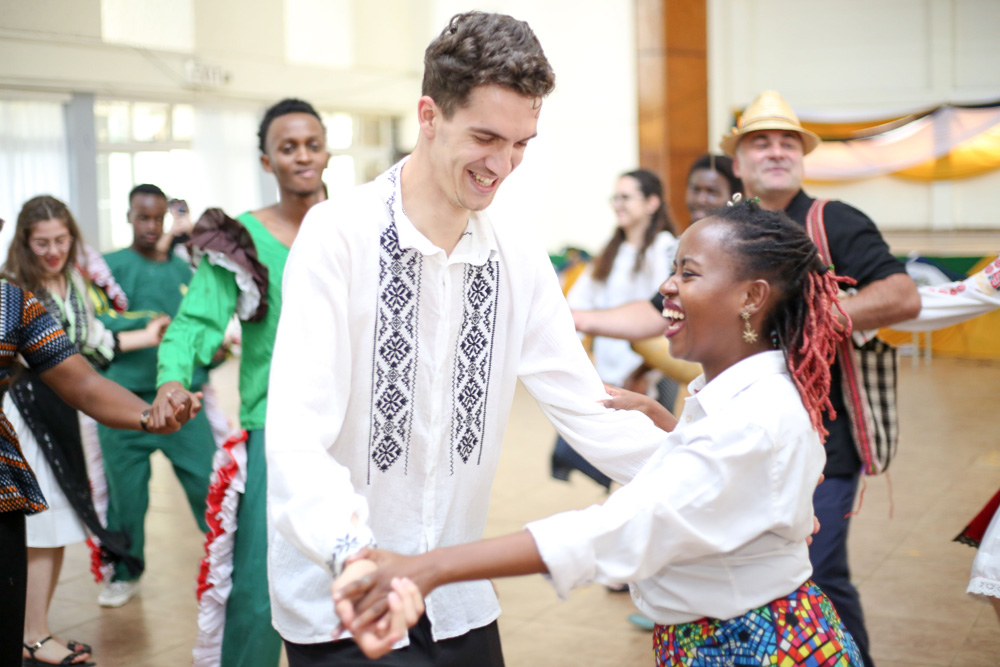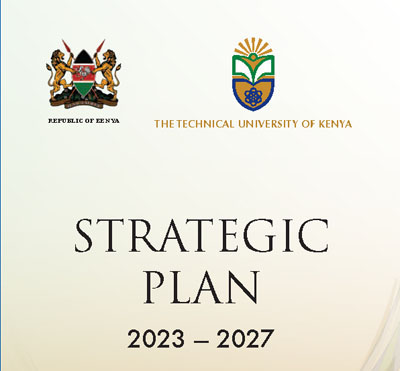Students from the Technical University of Kenya (TU-K) and Universities from Romania participated in a conference and workshop discussions to commemorate the “World Day for Cultural Diversity for Dialogue and Development”. The cultural exchange is mainly to strengthen multiculturalism and promote the rich traditions of masks across different cultures, with an aim to promote peace and tolerance.
The event was jointly organised by TU-K and Romania Embassy in Kenya. The activities for the day included music, theatre, and traditional dances with masks. These series of activities would mark friendship and partnership between Romania and Kenya.
Distinguished guests who graced the occasion, included Romania Ambassador to Kenya H.E. Mrs. Gentiana Serbu, Serbia Ambassador to Kenya H.E. Ms. Danijela Cubrilo Martic, the VC, Prof, Benedict Mutua, DVC in charge of Institutional Advancement and Enterprises Prof. Paul Wambua, DVC in charge of Research and Technology Advancement Prof. Alfred Orina, Ag. DVC in charge of Students Academics and Affairs Prof. Francis Gatheri.
Presentations with cultural significance and historical contexts made included, “Ritual masks from Serbia former and living tradition” by Mr. Natasa Mladenovic Ribic, the Curator, Centre for the Intangible Cultural Heritage at Ethnographic Museum, Serbia. “Romanian Masks- ancient traditions” by Mr. Virgil Nitulescu, Manager of National Museum of the Romanian Peasant. “Community engagement in developing Kenyan Culture” by Dr. Lydia Muthuma, Senior Lecture, Visual Arts and Photography, TU-K and Mr. Ovidiu Baron, the Deputy Manager of Astra Museum.
In his remarks, the VC, Prof Benedict Mutua welcomed the guests and commended the team that organised the event. Prof. Mutua acknowledged the importance of the event usually commemorated annually on 21st May.
“It is indeed a very important day because it reminds us of the importance of our different cultures, every year the world heritage looks at themes that brings us close to various cultures to discover and experience diversity,” he continued.
H.E. Mrs. Gentiana Serbu, acknowledged the historical significance of the day and gave a brief history of Romania during communist time, how tens of thousands of students from Africa would go there for studies.

She noted the National Council for Security has adopted a strategy that Romania now uses, which entails the three most important pillars including security, education and development.
“Education is an integral part of what we are doing here today, because once we sign the agreement, the benefits that come along are exchanges of students and professors who get to experience the European programs,” H.E. Mrs. Serbu said.
H.E. Ms. Danijela Cubrilo Martic pointed out that the World Day for cultural diversity was established by UNESCO General Conference to encourage greater solidarity in unity of humanity, improve cultural exchange, and thereby contribute to prosperity.
“Why does Cultural diversity matter? That’s a question we can raise on this day, all cultures and civilizations contribute to the wealth of humanity, at the same time 3/4 of the world’s major conflicts have a tradition. Therefore, breeding between cultures is necessary for peace, reservation, stability, and development,” H.E. Ms. Danijela explained.

She expressed her joy in seeing many young people sharing the opportunity for intercultural exchange, and willing to learn from each other, noting that she looks forward to receiving more humanitarians to live and work in Serbia.


